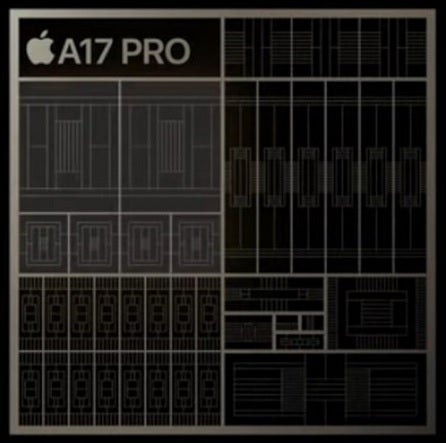TSMC shows off 2nm chip prototype to Apple

TSMC is the largest foundry in the world and Apple is its biggest customer. Apple was able to reserve most of TSMC's initial 3nm production for the A17 Pro chipset which is being used to power the iPhone 15 Pro and iPhone 15 Pro Max. To keep things simple, just remember that as the process node number gets lower, the transistors used by a chip get smaller in size which means that more of them can fit into the small space inside an SoC. The higher a chip's transistor count, the more powerful and/or energy-efficient it is.
Apple and NVIDIA have had a chance to examine 2nm prototype chips made by TSMC
Looking at the iPhone as an example, the iPhone 11 series was powered by the 7nm A13 Bionic which carried 8.5 billion transistors. The 3nm A17 Pro has 19 billion transistors. And since it takes a few years to build the fabs and order the machinery needed, we've known for some time that TSMC is working toward 2nm chip production. According to The Financial Times (via ArsTechnica), Apple has already had a chance to check out 2nm prototypes built on TSMC's N2 node. The report noted that another huge TSMC customer, NVIDIA, also was able to view the 2nm prototype chip.

Apple's 3nm A17 Pro chipset has 19 billion transistors inside
TSMC previously said that it would start 2nm volume production in 2025 and in a statement to The Financial Times, the company said that it is "progressing well and on track for volume production in 2025, and will be the most advanced semiconductor technology in the industry in both density and energy efficiency when it is introduced." Assuming that there are no delays, the iPhone 17 Pro and iPhone 17 Pro Max could be the first Apple handsets to be powered by a 2nm application processor (AP), possibly the A19 Pro.
At 2nm, TSMC will debut its new Gate-all-around (GAA) transistors which cover the channel on all four sides reducing current leaks and delivering gains in power efficiency. Samsung Foundry already uses GAA with its 3nm production.
Speaking of Samsung Foundry, the latest word is that Qualcomm will be switching from TSMC to Samsung for the production of the 3nm Snapdragon 8 Gen 5 AP in 2025. Qualcomm left Samsung Foundry in 2022 after the latter reported low yields building the Snapdragon 8 Gen 1. TSMC took over to produce the Snapdragon 8+ Gen 1 and has had the business ever since, although that seems likely to change in 2025. Samsung Foundry's yield is about 60% for the most basic of 3nm production. The yield is expected to drop when building APs for smartphones.
At a 60% yield, 40 out of every 100 dies cut from a wafer fails to meet quality control. And since the foundry's customers are usually responsible for the cost, yield is a major factor when determining which foundry a chip designer does business with.
Intel's A18 node (1.8nm) will go into mass production by 2025
Samsung says that it is ready for 2nm production. "We are well-equipped to set up for SF2 mass production by 2025," Samsung said. "Since we were the first to take the leap and transition to GAA architecture, we are hoping the progress from SF3 to SF2 will be relatively seamless." While Apple and NVIDIA were able to get a look at their future, TSMC is putting together the final list of its 3nm and 2nm clients according to DigiTimes.
Intel is also looking to grab some contract business away from TSMC and Samsung Foundry. Intel's next-gen 18A node (1.8nm) could take process leadership away from the pair and it is offering chip design firms free test production. Intel could shake up the market. Longtime TSMC customer AMD said in July that it would "consider other manufacturing capabilities."
Leslie Wu, chief executive of consulting firm RHCC, said that companies looking to have their chip designs manufactured using a 2nm node might start having their chip production spread across multiple foundries. With the concern about China invading Taiwan always something to worry about, Wu said, "It’s too risky to rely on TSMC solely." Yet Apple has been relying solely on TSMC for years.













Things that are NOT allowed: